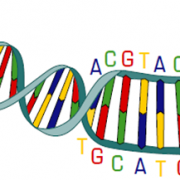Genetics and JIA
We are continuing to look at genes and how they affect JIA. We have had three scientific research papers published to help advance this subject and we are contributing to large international collaborative studies. For example, systemic JIA is one of the rarer types of JIA and can be more severe than the others. Current treatments of this disease often involve drugs used in other types of JIA. However, we have found that systemic JIA is genetically very different to the other types of JIA and should be considered a unique condition. This should hopefully lead to new, more effective treatments for this severe form of JIA.
Another type of JIA is known to be similar to adult rheumatoid arthritis (RA). This type, called Rheumatoid Factor (RF) positive polyarticular JIA, is rare and so far only small genetic studies have been performed on it. Our research has shown that RF-positive polyarticular JIA looks genetically more similar to RA than it does to other forms of JIA. This genetic similarity may give us a greater understanding of the causes of this disease. It could also mean that potentially useful treatments developed for use in adult RA could be used for this type of JIA, as well as the development of new treatments.
There are a number of different types of JIA. A system created by the International League of Associations for Rheumatology (ILAR) has been developed to help us describe these different types of conditions that make up JIA. This system is based on clinical data but we felt that including genetic data too could improve it. We have found that, as well as RF-positive polyarticular JIA being genetically similar to RA, the two most common types of JIA (Oligoarthritis and Rheumatoid Factor (RF) negative polyarthritis) are also genetically similar to each other. This may help improve the way these diseases are classified and help us to better understand how these diseases are caused, as well as develop new treatments.



Leave a Reply
Want to join the discussion?Feel free to contribute!